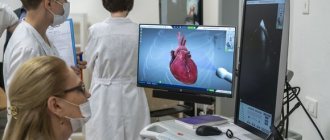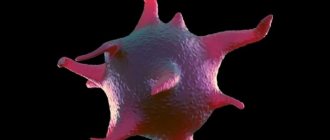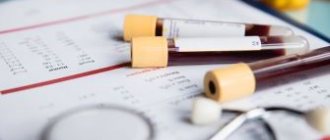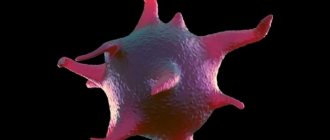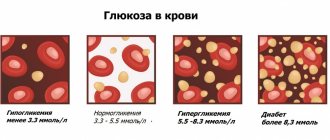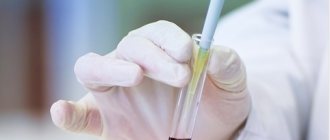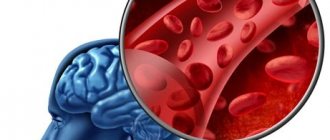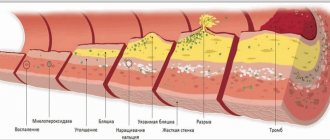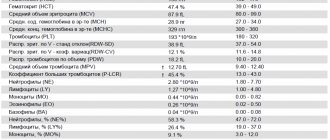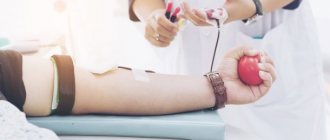Are there any benefits to donating blood?
Many researchers believe that regular small blood losses improve the functioning of the immune system because they stimulate blood volume replenishment.
The main thing about donation
The opportunity to become a donor is a merit of your healthy lifestyle. Find out why regular blood donation is so important. Detailed information about donation can be obtained on the Russian Blood Service portal yadonor.ru or by calling the Hotline: 8 800 333 333 0.
Within a month after donating blood, new red blood cells are actively produced, improving the supply of oxygen to all organs.
Absolute contraindications
There is a list of diseases for which a person will never be able to be a donor. These include blood-borne diseases. Among them are:
- infectious (syphilis, AIDS, HIV carriage, tuberculosis, viral hepatitis, leprosy, typhus, brucellosis, tularemia);
- parasitic (leishmaniasis, filariasis, toxoplasmosis, echinococcosis, trypanosomiasis, guinea worm).
People with certain physical illnesses are also not suitable. These include:
- blood diseases;
- malignant neoplasms;
- complete absence of speech and hearing;
- organic lesions of the central nervous system;
- mental patients, people suffering from drug addiction and alcoholism;
- respiratory diseases (asthma, emphysema, obstructive bronchitis, bronchiectasis);
- cardiovascular diseases (stage 2-3 hypertension, atherosclerosis, coronary heart disease, myocarditis, endocarditis, recurrent thrombophlebitis, heart disease);
- diseases of the digestive system, liver, biliary tract (ulcers, achilic gastritis, cirrhosis and other liver diseases, calculous cholecystitis);
- kidney disease (urolithiasis, focal and diffuse kidney damage);
- connective tissue problems;
- radiation sickness;
- endocrine diseases that are accompanied by metabolic disorders;
- chronic purulent-inflammatory and acute diseases of the ENT organs;
- eye diseases (myopia more than 6 D, trachoma, blindness, residual effects of uveitis);
- organ resection operations, tissue and organ transplantation;
- skin diseases (psoriasis, pustular and fungal lesions).
How often can you donate blood?
Whole blood can be donated no more than five times a year. There must be at least 60 days between two visits to the transfusion station. After all, it is important not only the amount of blood you donate, but also the state of your health
.
After donating platelets or plasma, you can become a donor again within two weeks. But at the same time, you cannot donate plasma more than 12 times a year, because along with it the body loses important proteins, minerals and other useful substances, the restoration of which takes time.
Behavior after the procedure
Once the blood draw is completed, the person should rest for a while.
To do this, you just need to sit quietly for 15 minutes and drink sweet tea. If you feel unwell or feel dizzy, you should contact the staff. In order to comply with all the rules for donating blood, you must refrain from physical activity on this day. It is advisable to start smoking no earlier than two days after the procedure. It is advisable not to remove the applied bandage for 3-4 hours. This should prevent bruising. But if it does form, then at the site of its appearance it is recommended to make compresses with heparin ointment. Instead, you can use Troxevasin.
It is also important to eat right: the body must receive all the necessary microelements. After donation, you need to monitor the amount of liquid consumed; you need to drink at least 2 liters of water.
Who should not be a donor?
There is a list of diseases for which you cannot donate blood, since it may be unsafe for the person to whom the transfusion will be given. First of all, these are almost all infectious diseases
, including HIV, syphilis, all types of hepatitis and tuberculosis.
You cannot donate blood if you have parasites
- echinococcus, toxoplasma and other “uninvited guests”.
Those who have malignant tumors, blood diseases, skin diseases, diseases of the nervous and cardiovascular systems, asthma, obstructive bronchitis and chronic obstructive pulmonary disease, some types of gastritis and ulcers, liver diseases and many other diseases, complete list, do not donate blood
which will be announced to you at blood transfusion stations. In addition, you will not be able to become a donor if you abuse alcohol or other psychoactive substances.
Following simple recommendations on diet is very important, since after the donor consumes “undesirable” foods, it becomes more difficult to carry out a high-quality blood examination.
Diet before donation
The night before donating blood, the donor should not consume:
- fatty foods
- fried food,
- spicy food
- smoked products,
- dairy products,
- eggs,
- oil.
These products have a bad effect on blood quality.
On the day of donating blood in the morning, completely exclude:
- all dairy products,
- eggs,
- bananas,
- meat products (sausage, frankfurters).
Even the smallest piece of cheese, coffee with milk or cream, a sandwich with 5 grams of butter, low-fat yogurt, banana or one egg will affect your blood test.
Eating fatty or fried foods before blood donation can lead to chyle and also greatly worsen the results of some tests.
Food that contains a large amount of animal and vegetable fats (fatty meat, lard, fatty sauces, pilaf, pastry creams, etc.) is considered fatty.
Fried food is food cooked in vegetable or animal fats in a frying pan without a lid (pancakes, fried potatoes, meat, fried pies, cheesecakes, scrambled eggs, etc.) or open fire (grill, shish kebab).
The most ideal breakfast is sweet porridge with water, sweet tea, dry bread, bread with jam.
Alcohol and drugs
During the 48 hours before the donation procedure, you should refrain from drinking alcohol; 72 hours before donating blood, you should not take medications containing aspirin and analgesics.
Smoking
One hour before donating blood, you should refrain from smoking. After the donation procedure, you should also wait an hour before lighting a cigarette.
Special preparation is important before donating platelets. It is very important not to smoke 2 hours before the procedure. If the donor smoked before donation, the functional activity of platelets decreases, i.e. those platelet transfusions to the patient become less effective. In addition, platelets may clump into conglomerates (aggregate), which is a reason for discarding them.
A donor with an improper sleep and rest schedule will also donate low-quality blood and may harm his health.
Diet after donation
For the speedy and complete restoration of blood composition, the donor is recommended to consume foods containing proteins, iron and calcium.
Proteins:
- milk and dairy products - kefir, sour cream, cottage cheese, cheeses (animal proteins),
- meat and meat products, poultry, eggs, fish and seafood (animal proteins),
- beans, peas, soybeans, lentils, corn (vegetable proteins).
Iron:
- buckwheat,
- lentils,
- parsley,
- spinach,
- apples,
- grenades.
Calcium:
- cheese,
- cottage cheese,
- eggs,
- fish,
- sesame.
Donating one portion of blood deprives a person of internal iron reserves in the body. Iron is necessary to restore lost red blood cells. Low iron levels are a common cause of anemia.
All donors should eat foods containing iron.
List of iron content in certain foods (mg/100 g of product)
| Product | Iron content, mg/100 g | Product | Iron content, mg/100 g |
| Dried mushrooms | 30—35 | Rabbit meat | 4—5 |
| Pork liver | 18—20 | Almond | 4—5 |
| Wheat bran | 18—20 | Turkey meat | 3—5 |
| Brewer's yeast | 16—19 | Peaches | 4—4,5 |
| Sea kale | 15—17 | Raspberries | 1,6—1,8 |
| Cocoa | 12—14 | Beet | 1,0—1,4 |
| Veal liver | 9—11 | Apples | 0,5—2,2 |
| Buckwheat | 7—8 | Boiled broccoli | 1,0—1,2 |
| Egg yolk | 6—8 | Potato | 0,8—1,0 |
| Heart | 6—7 | Carrot | 0,7—1,2 |
| Beef tongue | 5—6 | Fried chicken | 0,7—0,8 |
| Fresh mushrooms | 5—6 | Bananas | 0,7—0,8 |
| Beans | 5—6 | Egg white | 0,2—0,3 |
We recommend that regular platelet donors take calcium-containing vitamins, as well as calcium-rich foods such as cheese, cottage cheese, eggs, fish and sesame seeds.
Khiloz
Sometimes, when ordering a particular laboratory test, the resulting result may contain a not entirely clear phrase - blood chyle. Any ignorant person who is in no way connected with medical terminology can assume God knows what and think that this is some kind of terrible blood disease. In fact, everything is much simpler: blood chyle is not a disease; this term is used if, when taking tests, the level of triglycerides in the blood was significantly increased, which normally should not be there. Chylous serum can occur in people of different ages, genders and various occupations.
Blood chyle is a definition of a pathological condition, which indicates the presence of fatty particles in the blood that do not allow for an accurate diagnosis. After centrifugation, blood containing a high level of triglycerides (neutral fats) becomes white and very thick, resembling sour cream in appearance.
Causes of chylosis
Triglyceride levels can fluctuate significantly within one day. Their content in the blood serum increases significantly 15-25 minutes after a meal and only after 10-12 hours it decreases to the initial level, therefore all blood tests must be performed on an empty stomach, as a rule, after an overnight period of fasting, so that the lipids contained in food do not enter into the blood.
Most often, blood chyleosis is observed in patients who were improperly prepared for blood tests. You should not drink alcohol or fatty foods before donating blood. It is this reason that provokes a high level of neutral fats and the formation of chylous serum.
Chylous serum does not make it possible to isolate blood components. Therefore, a blood test cannot be performed. It is also impossible to use “fat” blood for transfusion to the recipient.
What contraindications to donation are temporary?
People who have visited subtropical countries where malaria is common will not be donors
for three years for a year
after the birth of a child, tattooing, piercing, contact with people with hepatitis B and C, or vaccination against these diseases.
People cannot donate
for six months And also those who went on a business trip or traveled abroad for more than two months. a month
after influenza and ARVI, treatment of inflammatory processes or vaccination with live vaccines.
Blood can be donated ten days
after tooth extraction,
five days
after the end of menstruation.
Preliminary stage
Every person who plans to donate blood should prepare. You cannot drink alcohol for 48 hours, and smoking is also prohibited. However, if a person drinks alcohol often enough, the level of alanine aminotransferase (ALT) can be constantly elevated. People who abuse alcohol should give it up a week before donating blood.
Due to the risk of increasing the level of this enzyme, on the eve of the examination you should avoid eating lard, mayonnaise, butter, and sour cream. If the ALT level is elevated, then the next time a potential donor can come to donate blood no earlier than in 3 months.
No top bar
Only a healthy person can be a donor. Those who are sick with HIV or hepatitis, or suffer from chronic diseases - for example, gastric ulcers, inflammatory diseases such as acne or severe caries, as well as varicose veins - may be refused to donate blood. Such people may have bacteria in their blood, making it unsuitable for transfusion. The decision on withdrawal, temporary or lifelong, is made by transfusiologists.
“This is exactly why there is a consultation with a doctor before donation. Not a nurse, as in many countries, but a full medical examination and survey. If a potential donor is assigned to a Moscow clinic, we look at his health data in the EMIAS system,” says the chief physician of the O.K. Blood Center. Gavrilova Olga Mayorova.
The optimal age to become a donor is 18–20 years old. (By law, Russian citizens cannot be donors under the age of 18.) Those starting later should be prepared to receive a temporary allotment. If a person has a chronic disease and has not seen a doctor for a long time, he may be referred for additional consultation.
“A primary age donor rarely becomes one the first time. You may need a doctor's report on your state of health and the presence of chronic diseases; we provide a referral to the appropriate clinic with a clear list of questions that interest us. And then, based on the results, a decision is made as to whether a person can be a donor,” says Olga Mayorova.
However, there is no upper limit—up to what age you can be a blood donor . If a person is healthy and feels well, he will be allowed to donate.
“We have donors who have crossed the 60- and even 70-year-old mark. But these are, as a rule, those who started donating blood or its components in their youth. The overwhelming number of donors are people under the age of 45–50 years. Later, many people accumulate a burden of diseases that does not allow them to become a donor,” explains Olga Mayorova.
Procedure for calculating payments
Donor days are paid. The amount of compensation is determined based on the average salary of the employee. The calculation is carried out in accordance with the following procedure:
- Determination of the billing period.
- Determining the average salary of an employee per month.
- Calculation of average daily salary.
- Multiplying the indicator by the number of donor days.
For example, the average monthly salary of an employee is 30,000 rubles. The average daily salary is 1000 rubles. A person rests for 2 days in connection with donating blood. Consequently, the amount of accrued compensation will be 2000 rubles.
Are employee benefits taxable?
Many articles on the Internet say that payments to a donor on weekends are taxable. Various experts shared the same opinion. However, the Ministry of Finance refuted this position in several letters dated 2006 and 2007. It was clarified that payment of compensation is an obligation, not a right of the employer. Payments will have to be made regardless of whether this is stated in the employment contract. Therefore, accruals cannot relate to payments under employment contracts. Based on this, we can conclude that they are not considered an object of taxation of the unified social tax (UST).
Donation payment issues
Just a few years ago, people who decided to donate blood could receive monetary compensation. For example, in Moscow you could get about 1000 rubles. instead of free food. They were also paid 650 rubles. for every 100 ml of biomaterial. Payment for blood donation in other regions was lower. But active donors received almost 2 times more.
In 2012, a new law was adopted, the provisions of which are aimed at making blood donation free and voluntary. Donors are now only entitled to free food and a number of social guarantees. But at the federal level, cases may be established in which it is possible to donate blood for a fee.
The main idea of the new law is that people should become donors not because of the monetary compensation they are entitled to, but to save lives. The money that was spent on payment is now spent on propaganda. This should attract a larger number of conscientious citizens who do not think that donating blood is just a way to earn money. Naturally, such people must also follow the rules (payment, by the way, is provided for honorary donors), because they do this not for the sake of a small amount, but for a good purpose - to save someone’s life.
What to do if you have a conflict with your employer?
Not all employers are aware of employee rights. For example, an employee who did not notify of his absence, when reporting to work, may find out that he has been assigned absenteeism and is threatened with dismissal. In this case, you can safely contact the labor inspectorate with certificates confirming donation. The employer cannot:
- Establish absenteeism for the dates of blood donation and carry out disciplinary sanctions in connection with this.
- Refuse accruals in favor of the worker.
- Refuse to issue a day off.
All these are serious violations that can and should be combated.
Signed up or just passed by
According to Olga Mayorova, the entire blood donation procedure takes about two hours. This is how much time will be required for registration, initial blood test, medical examination, donation itself, obtaining all certificates and rest.
A typical donor spends about 15 minutes in the chair. During this time, he donates 450 milliliters of blood. Plasma collection lasts about 40 minutes, platelets - up to one and a half hours.
Donors can expect to be excused from work or school for two days. Those who came for the donation, but were not suitable for donation according to some parameters, receive a certificate indicating the time of their presence at the center. The employer does not have to deduct payment for these days or hours.
For convenience, on the website of the O.K. Blood Center. Gavrilov, a number of other blood services operate by pre-registration, just like in a regular clinic.
“If a person does not use the Internet or, in the end, was just passing by and today he wanted to accomplish a feat, we, of course, will accept him. He'll just spend more time. We are located next to the Botkin Hospital, there is a large flow of visitors whose relatives are being treated there. If a relative received a blood transfusion a few days ago, they may express a desire to become a donor and help someone else,” says Olga Mayorova.
Due to the spread of coronavirus and the postponement of some planned operations, the city’s need for donor blood has temporarily decreased . However, no one has canceled the treatment of hematological patients and traumatism. Donors continued to visit blood transfusion stations even during the period of restrictive measures. , a free taxi ride was provided
With the gradual exit of the capital from the regime of restrictive measures, the need for donor blood will grow, which means that the stations are waiting for new people willing to help.
By the way, on the eve of World Donor Day, the first to respond and take part in donating blood were Moscow volunteers - participants in the #WeAreTogether mutual aid marathon (from the resource). Volunteer doctors and students of the capital held the action “Follow me! #I'mAResponsibleDonor." Blood donation points have been set up at medical universities and healthcare institutions. More than 200 people took part in the donation. In addition, on the website wevmeste.mosvolonter.rf there is a page dedicated to donation. There everyone can learn about becoming a donor and how to prepare for it.
